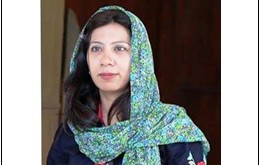ISLAMABAD: Over 10,000 people in different parts of Pakistan will have access to short term vocational training courses under a pilot initiative launched here on Friday under TVET Reform Support Programme.
The initiative was inaugurated at a ceremony, which marked the beginning of pilot phase of projects to be financed under a Fund for Innovative Training (FIT) that has been created to promote innovative approaches in the skill development sector of Pakistan. Besides, National Vocational and Technical Training Commission (NAVTTC) Executive Director Tariq Shafi Chak, representatives from provincial governments and project partners, undertaking skill development programmes, were present on the occasion.

TVET Reform Support Programme, co-funded by the European Union, the Kingdom of the Netherlands and the Federal Republic of Germany, is funding and assisting the NAVTTC in execution of this initiative through the FIT.
The TVET Reform Support Programme, which is being administered by the GIZ, is managing the FIT that acts as an instrument to assist the TVET reform in Pakistan as envisaged in the National Skills Strategy. FIT interventions have a focus on skills development interventions for marginalized groups. Overall, at least 75 per cent of all FIT beneficiaries are expected to come from poor households.
The pilot phase of FIT was initiated in Sept 2011, as over 40 submissions were received of which 14 projects were approved. Approved projects were submitted from organizations such as Punjab Vocational Training Council, Indus Resource Centre, Sungi Development Foundation and Rupani Foundation.
Nature of projects include industrial garment stitching for transgender, welding for the internally displaced group, motorcycle mechanic training targeting the Ustad-Shagrid system in collaboration with motorcycle manufacturers, precious stone craftsman training for the marginalized groups, creating employment opportunities for the artisan craftsman, and promoting entrepreneurship development for youths and women.
Beneficiaries of the projects would come from geographical locations such as Sindh, KPK, Punjab, Gilgit Baltistan, Boluchistan and AJK. Approximately 10,000 people will benefit from the pilot phase training. It is expected that following the launched of this pilot phase, a regular phase will be implemented in the middle of this year. Best practices and successful models will also be shared in an national conference at the end of the year.
 Pakistan TVET REFORM Support Programme Technical and Vocational Education and Training (TVET) Reform support Programme
Pakistan TVET REFORM Support Programme Technical and Vocational Education and Training (TVET) Reform support Programme






